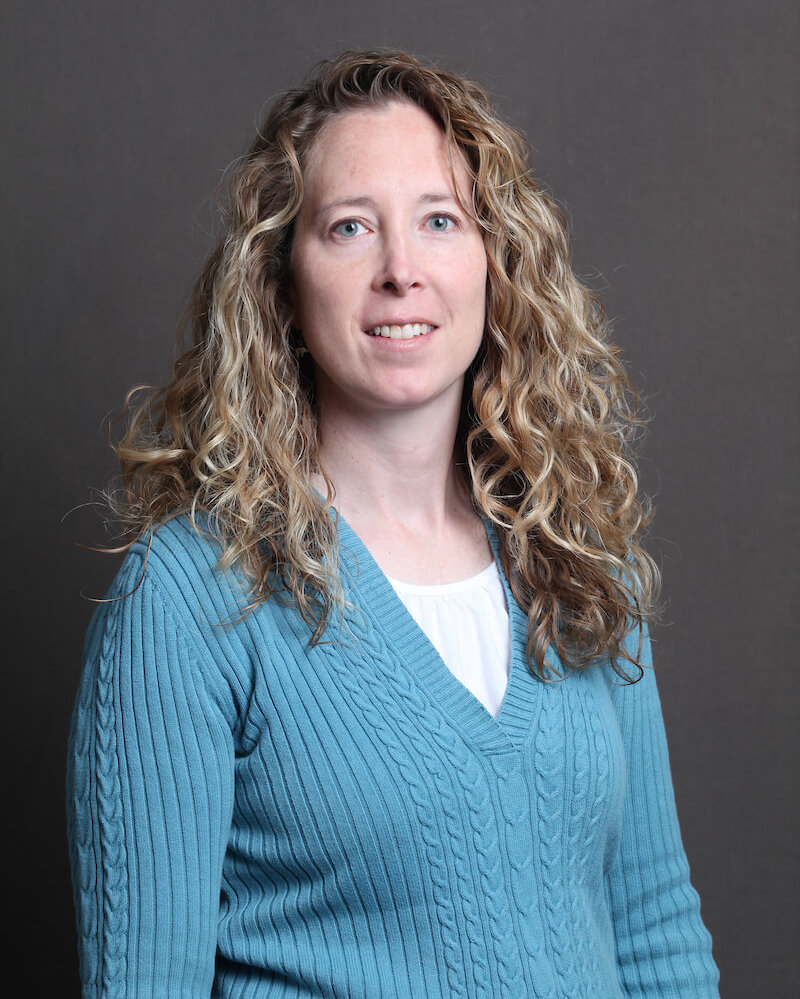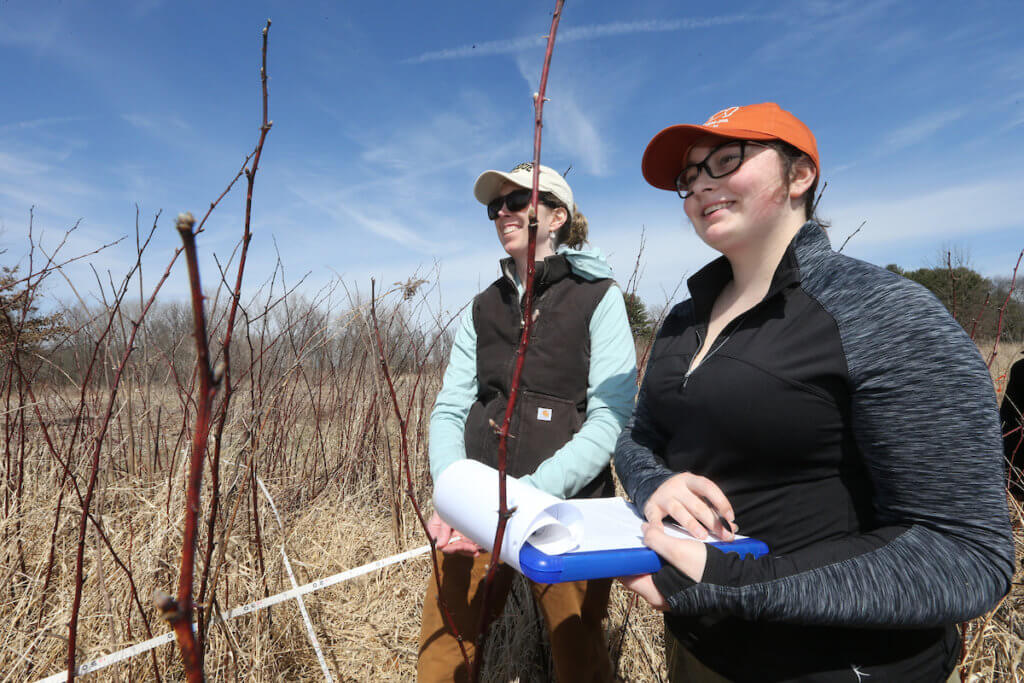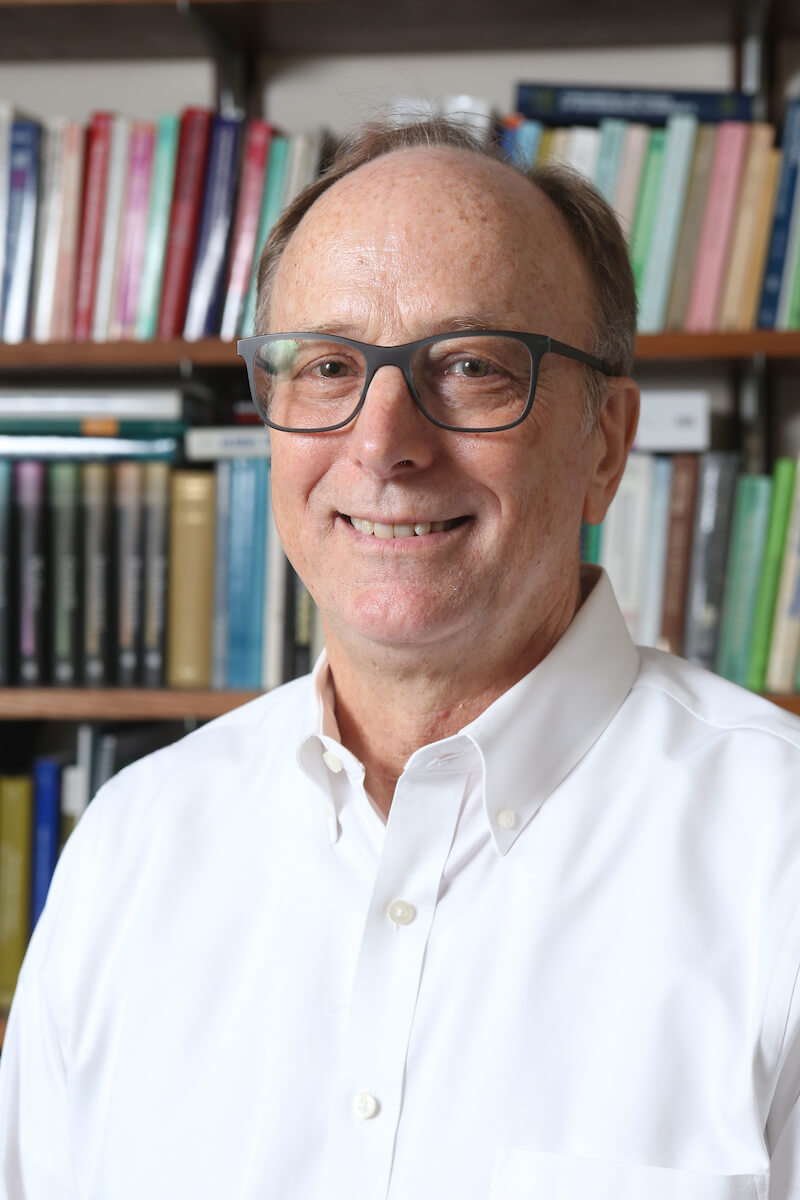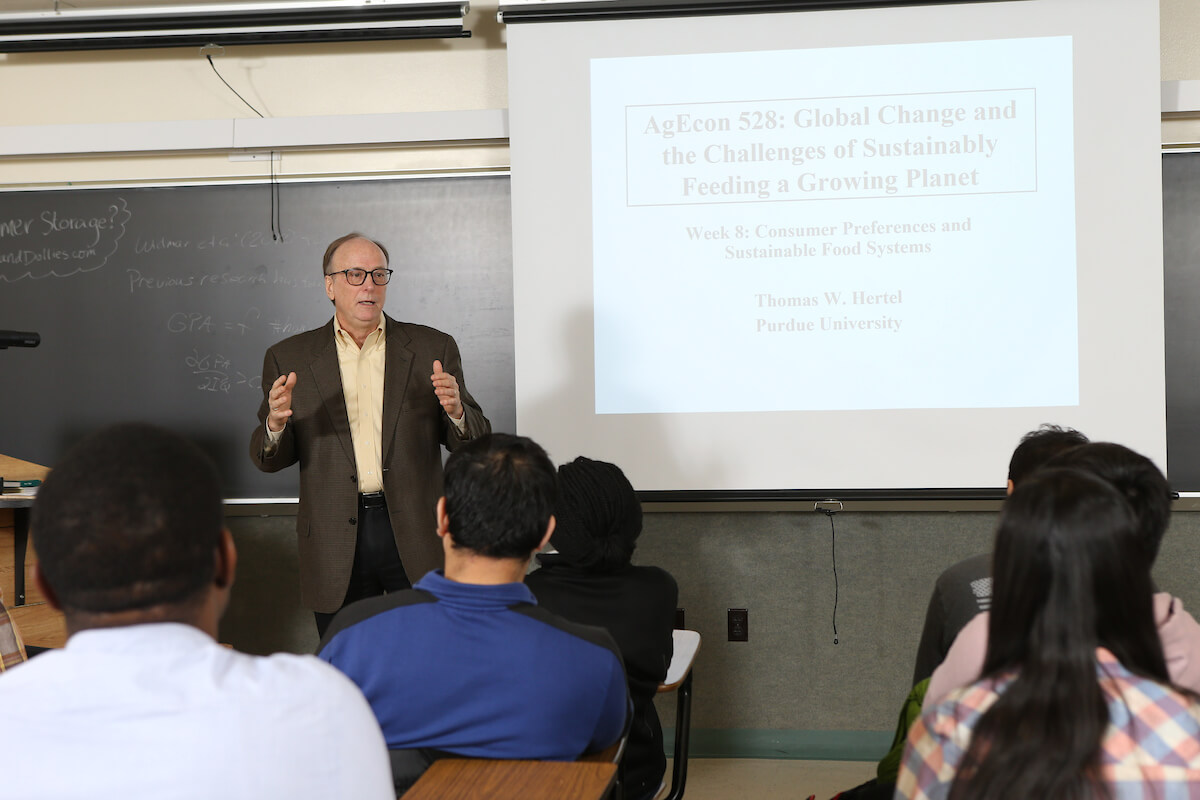Much to learn from annual Celebration of Teaching Excellence
“Small changes can make a big difference in students’ undergraduate experiences and professional development,” said Elizabeth Flaherty as she presented the Kohls Outstanding Undergraduate Teacher Lecture.
In recognition of her innovation and excellence in teaching undergraduate students, Flaherty was one of two professors selected to present during the College of Agriculture’s sixth annual Celebration of Teaching Excellence.
Flaherty, an associate professor of wildlife ecology and habitat management in the Department of Forestry and Natural Resources (FNR) shared with her audience methods and mindsets she has adopted to prepare her students for the workforce.

Elizabeth Flaherty
In the lecture, “Teaching More Than Course Content,” Flaherty explained ways she builds professional development into her undergraduate curriculum and courses. “These efforts lead to retention in our programs and profession.”
In her classes, Flaherty holds team debates over scientific articles to build confidence, self-efficacy and empathy in her students.
She also uses Course-Based Undergraduate Research Experiences (CUREs) “to increase access for students to develop their research skills and identity as a scientist or professional.”
“Undergraduates need more funded professional development and industrial mentoring,” said Flaherty. She finds that current research experiences for undergraduates are highly competitive, with few available positions and a potentially lower diversity of participants.
By implementing CUREs, Flaherty has seen her students gain a 40% interest in working as a scientist. The hands-on research helps her students decide if a career in FNR is right for them.
“Learning early that you might not like spending the day outside with the ticks and mosquitoes is actually a good thing,” said Flaherty.
She also promotes attendance of national scientific conferences to her students to explore careers and build networks. Through one course, students prepare for and travel to conferences together, such as The Wildlife Society’s Annual Conference in 2018. Students are tasked with objectives to complete during the conference, such as meeting another undergrad member from a different institution and attending a working group meeting.

Elizabeth Flaherty (left), photo by Tom Campbell
From surveys Flaherty conducted before and after conferences, she finds that the percentage of her students planning to pursue a career in wildlife increased from 89.2% to 94.6%, while those planning to go to graduate school increased from 69.4% to 80.6%.
Thomas Hertel, a distinguished professor of agricultural economics, gave the Outstanding Graduate Mentor and Teacher Lecture, following Flaherty.
“This is, perhaps, my greatest honor, receiving this award,” said Hertel. “Certainly, my greatest pride is the accomplishments of the grad students I’ve worked with.”
The 43 Ph.D. Hertel has supervised are represented around the world in government, the private sector, international organizations, and academia, including Jay Akridge, Purdue’s provost and executive vice president for academic affairs and diversity.
Hertel’s impact continues to grow, as attested to by an unnamed former student, as part of Hertel’s nomination package. “I learned a tremendous amount from him and find myself emulating his style as I mentor my own Ph.D. students, his academic grandchildren.”

“I wanted to focus my talk on educating the next generation of interdisciplinary researchers because it is my current passion,” began Hertel, who specializes in international trade, climate change, food and environmental security.
“I have found that many of our best students come in with great ideas and great ambitions about bridging divides. Sometimes, taking all these disciplinary courses, they lose track of that. Our job as we think about our curriculum going forward is to capture that enthusiasm early on and help them maintain some of those ideas.”
The ideas presented by students and lecturers in Hertel’s courses provide inspiration to Hertel himself, at times.

“A great thing about this class is how teaching fuels research and broadens my horizons,” Hertel said. “Something that I’d never thought about benefitting from that was a big asset for me was that these guest lecturers became my interdisciplinary collaborators.”
“I’ve had a fantastic set of students,” noted Hertel. “It has been such an honor to work with them, and I want to continue that process with the students I’m working with now. That is my passion, that is what I take the greatest pride in at Purdue.”






